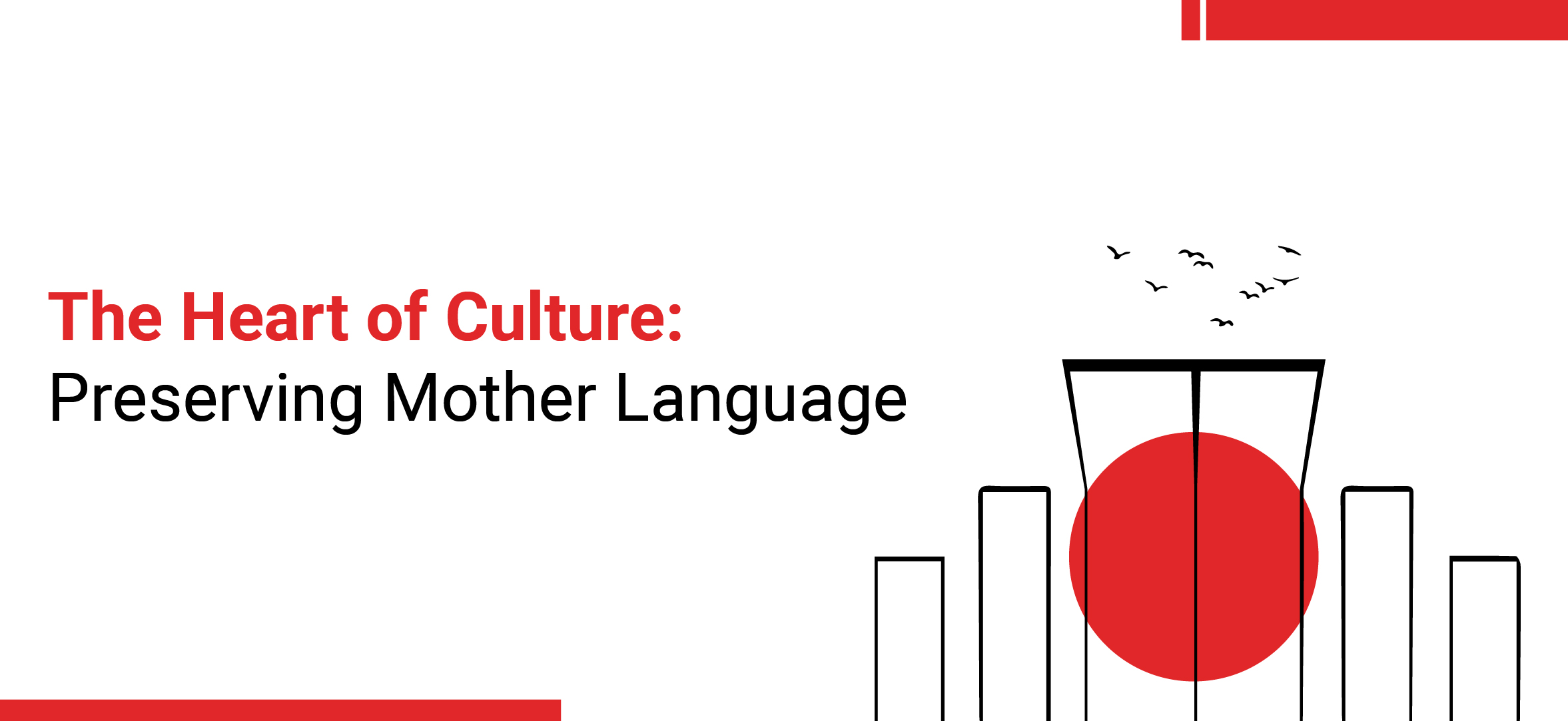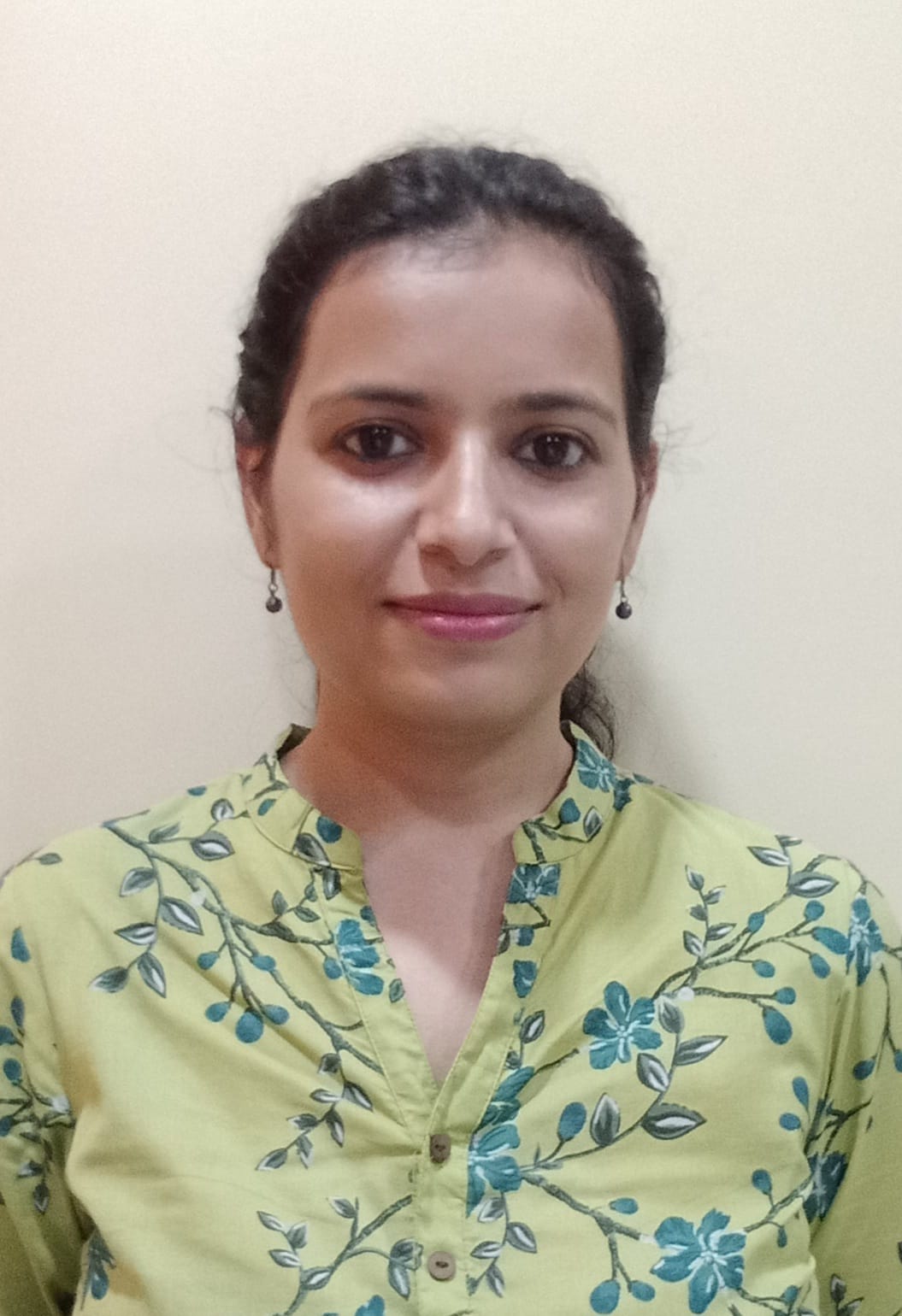The Heart of Culture: Preserving Mother Language
Blogs Home
- 21 Feb 2023

In today's increasingly globalized world, the ability to speak multiple languages is becoming increasingly important for personal and professional growth. As countries and economies become more interconnected, the demand for individuals who can speak multiple languages has grown. In this context, learning a foreign language has become essential for many people to secure better professional opportunities. However, it is important to note that learning a mother language, also known as a first language or native language, is also important and should not be overlooked. A mother language is a language a person learns from birth or in early childhood and is typically the primary language used in their home and community. It is an integral part of a person's cultural identity and provides a foundation for further language learning.
International Mother Language Day
International Mother Language Day is observed annually on 21st February to promote linguistic and cultural diversity and to protect endangered languages. The day was proclaimed by the General Conference of the United Nations Educational, Scientific and Cultural Organization (UNESCO) in 1999. The day aims to promote the preservation and protection of all languages used by peoples of the world, as well as to encourage multilingualism and the spread of knowledge and understanding about language diversity.
Scientific research has shown that learning a child's mother language can positively impact her overall cognitive development and academic success. Here are some key findings that highlight the importance of education in one’s mother language:
- Improved cognitive development: Studies have shown that children who learn in their mother language have better cognitive development and increased critical thinking skills, compared to those who learn in a foreign language.
- Improved literacy: Research indicates that children who are taught to read and write in their mother language are more likely to develop strong literacy skills and have higher academic achievement, compared to those who are taught in a second language.
- Better engagement and motivation: When children are taught in their mother language, they are more likely to be engaged and motivated in the learning process. This is because they can understand the material better, which leads to increased self-esteem and academic confidence.
- Cultural preservation: Learning in a mother language can help to preserve a child's cultural heritage and identity. When children can connect with their culture through language, they are more likely to feel a sense of belonging and develop a positive self-image.
- Bridging the gap: In multilingual societies, learning in a child's mother language can help bridge the gap between different cultural and linguistic communities, promoting inclusiveness and understanding.
By providing children with opportunities to learn and express themselves in their mother language, we can help promote cognitive development, academic success, cultural preservation, and social cohesion.
Value mother language to preserve cultural heritage
Mother language instruction is essential for language and literacy development, as well as for the preservation of cultural heritage and identity. The importance of mother languages extends beyond the individual and the community, as linguistic and cultural diversity is an important aspect of the world's cultural heritage. Every language represents a unique perspective on the world and reflects the experiences of a particular community. When a language is lost, a valuable cultural perspective is lost as well. This is why it is important to preserve and promote linguistic and cultural diversity, to ensure that future generations can connect with their cultural roots.
Challenges and threats to mother language
Despite the many benefits of mother language instruction, it can be challenging for some individuals to access resources and support for mother language learning. In many countries, individuals who speak minority languages face discrimination and are denied equal opportunities in education, employment, and other areas of life. This can lead to further language loss and cultural marginalization. To promote linguistic and cultural diversity, it is important to address these challenges and create an inclusive society that values and celebrates the unique perspectives and experiences of different communities.
In many countries, children are not taught in their mother language, which can lead to language loss and disconnection from cultural heritage. This can have negative consequences for the individual, including a loss of identity and cultural connection, as well as for the community, as valuable cultural knowledge and traditions are lost. All individuals must have access to education in their mother language to ensure that linguistic and cultural diversity is preserved for future generations.
How to support?
One way to support mother language education is by promoting multilingual education, which emphasizes the importance of learning multiple languages. This type of education not only helps to preserve linguistic and cultural diversity but also promotes language learning and cross-cultural understanding.
In addition, governments and organizations can also provide resources and support to help communities preserve and promote their mother languages. This can include funding for language revitalization programs, language education, and cultural events. This year the theme for International Mother Language Day is “Multilingual education- a necessity to transform education.”
The Ministry of Culture in India promotes mother languages through the following initiatives:
- Cultural events and programs: The ministry organizes various cultural events and programs to showcase the rich linguistic diversity of India and encourage the use of mother languages.
- Financial support: The ministry provides financial support to research and documentation projects aimed at preserving and promoting mother languages.
- Collaboration with other organizations: The ministry collaborates with other organizations, both government and non-government, to promote the use of mother languages.
Mother language vs Foreign language
Mother languages play a crucial role in shaping an individual's cultural identity and personal development. They are the first language that children learn, and they are closely tied to family, community, and cultural traditions. When children are educated in their mother language, they are more likely to be engaged in the learning process, have better academic outcomes, and develop a strong sense of cultural identity.
On the other hand, a foreign language is a language learned outside of a person's home and community and is not typically used as the primary means of communication. Learning a foreign language can have many benefits, including enhanced cognitive abilities, improved job prospects, and increased cultural understanding.
Both mother languages and foreign languages are important. Mother languages provide a sense of cultural identity and a foundation for further language learning, while foreign languages provide opportunities for personal and professional growth and intercultural understanding. Both mother languages and foreign languages are valuable and should be valued and preserved. Promoting linguistic and cultural diversity and supporting individuals in their language-learning journeys can help to enhance personal and societal growth.
Mother languages are at the heart of cultural identity and personal development. International Mother Language Day provides an opportunity to celebrate the linguistic and cultural diversity of the world and to raise awareness about the importance of mother languages. By supporting mother language education and multilingualism, we can help to preserve valuable cultural heritage and ensure that future generations have access to their cultural roots. Promoting education in mother languages is an important step towards fostering original thought, preserving cultural heritage, and promoting academic success.
Priyanka Todariya
Priyanka Todariya is a Public Administration post-graduate and an experienced communications professional who has extensively worked for several government entities like Ministry of Jal Shakti, Ministry of Skill Development and Entrepreneurship, National Skill Development Corporation (NSDC) and state governments like Uttar Pradesh and Gujarat.
Blogs Home




